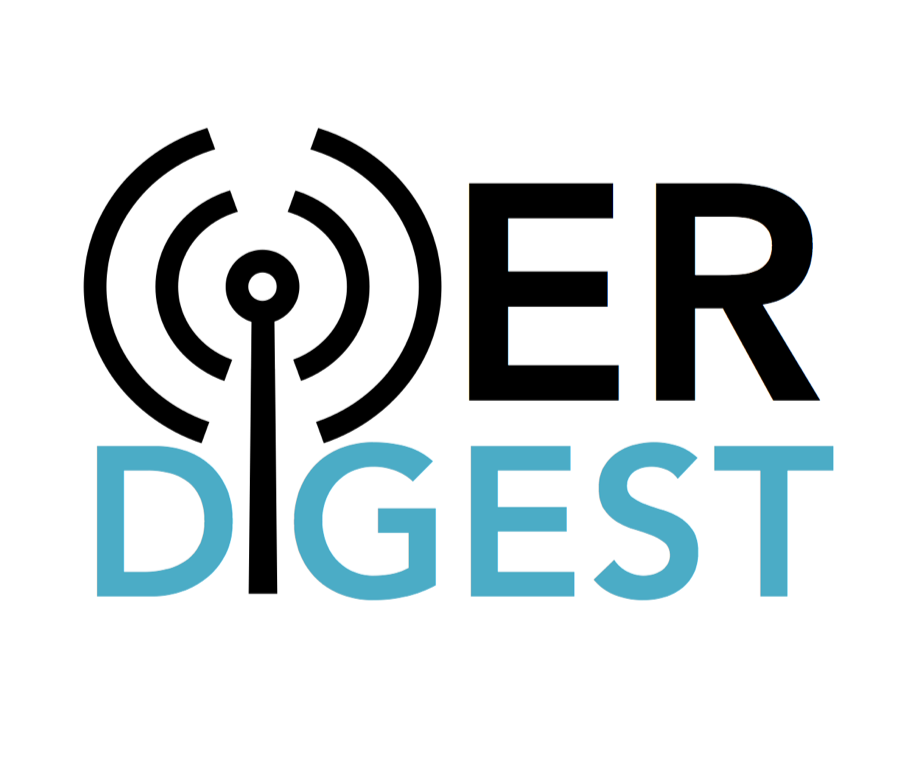OER Digest - February 20, 2020
From Mo Nyamweya, SPARC | Volume 100 | February 20, 2020With updates from Ethan Senack
THE OER DIGEST: 100TH EDITION
The OER Digest started out with a very simple goal -- to reduce the amount of time that we spent talking about the same news and updates on different conference calls. In the 5 years since, the Digest has grown to be a core source of OER news for thousands of people, expanded to include a host of new authors, and to reach our 100th edition this week. Those of us who have been involved in the digest are so grateful to our whole community of readers for their support, and we thought we’d celebrate this edition by checking back in on some of our top stories from the first editions to see where they are now. - Ethan Senack, original Digest author
WHERE ARE THEY NOW?
Checking back on some of our top stories from OER Digest’s first editions
SUPPORT FROM THE UN: We first reported on UN action relating to OER back in October 2015, when the State Department organized an OER workshop in conjunction with a UN General Assembly meeting in New York. In early 2019, UNESCO released a report titled “Understanding the Impact of OER: Achievements and Challenges,” providing a series of case studies detailing OER policies and initiatives happening around the world. As part of the UN’s 2030 Development Agenda, UNESCO unanimously recommended a new policy on OER this past fall. Read up on the UNESCO recommendations here.OPENSTAX SUCCESS: Our October 15, 2015 edition reported that OpenStax’s shared open textbooks saved students $39 million in 2015, with their adoption tracking showing that their books were in use at 1 in 5 degree granting institutions in the US. Just about four years later, OpenStax has grown exponentially, saving 9 million students $830 million in 2019. Since publishing its first free textbook online in 2012, OpenStax has expanded its library to provide books for over 36 college and Advanced Placement courses, affecting over 9 million students in total.#GOOPEN: As reported in our October 29, 2015 edition, the Department of Education launched #GoOpen, a campaign to encourage states, school districts and educators to use openly licensed educational materials. Following the launch, a cohort of 10 K-12 school districts committed to take the “#GoOpen challenge” and replace at least one traditional textbook with open resources. Approximately four years after the campaign was launched, over 100 districts and states are part of the network, and there are regular regional and national convenings for practitioners, advocates, and administrators. Learn more about #GoOpen here.SENATOR DURBIN’S OER ADVOCACY: In our very first digest edition, we reported that Senator Durbin (D-IL) introduced federal legislation supporting OER aiming to establish a competitive grant program to allow universities access to funding for launching OER adoption programs at their campuses. The proposed legislation eventually became the Affordable College Textbook Act, which would establish a federal grant program to incentivize adoption. While the full, freestanding bill hasn’t been passed, Congress has authorized and appropriated $17 million into the Open Textbook Pilot grant program and provisions of the bill have been included in proposed Higher Education Act reauthorization bills in the House. Check out information from SPARC and U.S. PIRG to catch up on the latest updates regarding the Affordable College Textbook Act.FROM MASSACHUSETTS: In our October 1, 2015 digest, we wrote about how Massachusetts’ Higher Education committee and Senator Moore (D-MA) were still in the early stages of considering state-wide action to advance OER. Fast forward four years later, and Massachusetts is one of many states leading the charge on open education. Most recently, the Department of Higher Education’s OER Working Group released their recommendations on what a state OER initiative should look like.FROM COLORADO: The state of Colorado has made huge strides in their OER advocacy efforts since 2015, when we wrote about Colorado State University’s OTN faculty workshop in our first Digest edition. By 2018, Colorado launched a state-wide OER initiative, providing $660,000 to fund 20 OER grant programs across the state. In its first year, Colorado’s grant program saved students $3.4 million. Building upon the grant program, Governor Jared Polis launched a ZTC challenge, which will award top schools and departments for progress made by the end of the 2019-20 school year. Last year, University of Colorado launched their Open CU initiative, designed to leverage existing infrastructure, advocacy and leadership support to increase OER awareness, evaluation and adoption across the campuses’ 66,000 degree-seeking students and 9,000 faculty and instructors.FROM MARYLAND: In our October 1, 2015 edition, we reported on University of Maryland University College announcement that it would start a major transition to OER in place of traditional textbooks. Four years later, the Maryland Open Source Textbook Commons (M.O.S.T.) was launched, providing a digital library of OER that can be used to discover, collaborate, and create with educators to improve curricula. The M.O.S.T. Commons also features innovative search features and curated collections of resources, making it even easier for faculty to find the right resource(s) for their course.
Have suggestions for the next edition? Let us know at oerdigest@gmail.com, or tweet us @OERdigest.
The OER Digest is a public newsletter distributed to a broad group of stakeholders across the higher education community. You can join the open Google Group or check out the distribution list here.
